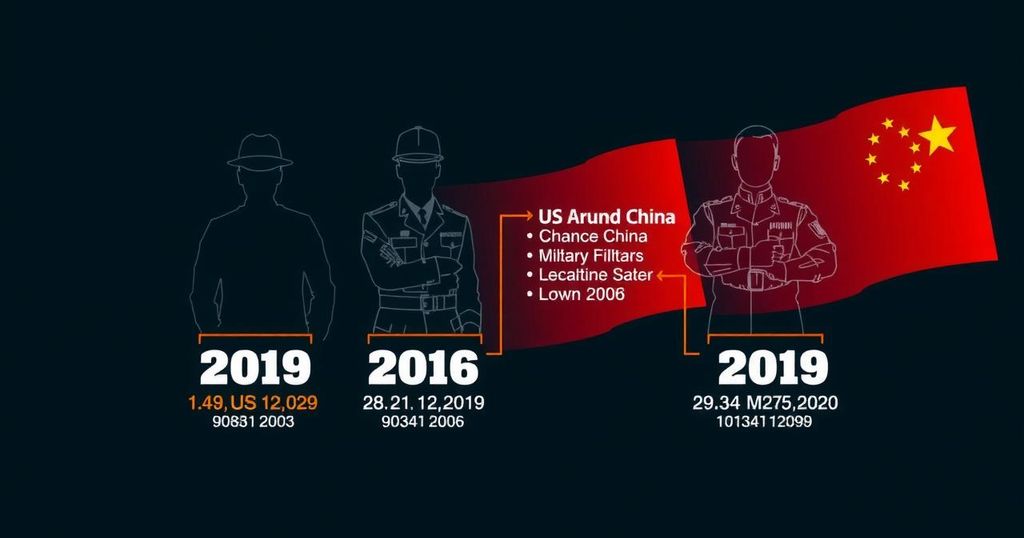U.S.-China Military Talks Address South China Sea Tensions and Geopolitical Issues
Summary
Top military officials from the U.S. and China held discussions in Beijing concerning tensions in the South China Sea, Taiwan, and the Russia-Ukraine war. Led by Deputy Assistant Secretary Michael Chase, these talks were the first of their kind since January, resuming after a two-year hiatus due to deteriorating relations. The meetings aim to support conflict avoidance despite ongoing disputes and assertive actions by China in contested maritime regions.
Military leaders from the United States and China convened in Beijing for a series of routine discussions aimed at addressing heightened tensions surrounding the South China Sea and related geopolitical matters. This engagement marks a resumption of bilateral talks that were stalled for two years due to deteriorating relations between the two nations. The discussions, which concluded Sunday, included a review of critical issues such as the status of Taiwan, the ongoing Russia-Ukraine conflict, and maritime confrontations in the South China Sea. Michael Chase, the deputy assistant secretary of defense for China, Taiwan, and Mongolia, led the U.S. delegation during the Defense Policy Coordination Talks—the first of their kind since January. Although the hope for these meetings was not to resolve deep-rooted disagreements regarding topics like territorial claims in the South China Sea or the status of Taiwan, the United States continues to advocate for open channels of communication as a method to avert potential military conflict. Chase’s participation in these discussions followed his attendance at the Xiangshan Forum in Beijing, which serves as a parallel platform to the Shangri-La Dialogue. The resumption of military communications between the two countries comes after a period of silence initiated in 2021 as tensions escalated over divergent viewpoints on issues including Taiwan’s sovereignty, the origins of COVID-19, and economic relations. Despite the breakdown in communication, U.S. officials have consistently sought to re-establish dialogues with Chinese counterparts, particularly concerning military encounters in the air and at sea. Following a bilateral meeting between U.S. President Joe Biden and Chinese President Xi Jinping in San Francisco in November, channels of communication were partially restored. Nonetheless, the future of these conversations remains uncertain, particularly with the approach of the U.S. presidential elections. During the recent talks, discussions also encompassed China’s support for Russia amid the ongoing conflict in Ukraine and the nation’s conduct in the South China Sea. A senior defense official from the U.S. briefing reporters stated that they were closely monitoring developments regarding the situation at a disputed shoal, where a Philippine vessel, the BRP Teresa Magbanua, was recently resupplied for humanitarian assistance. The Philippine government has reported increasing tensions with China’s coast guard, particularly concerning maritime claims over the South China Sea, a region that has become the site of recent confrontations. China has been assertive in its territorial claims, leading to incidents such as the August clash between Chinese and Philippine vessels, which resulted in damage to Philippine ships. The Philippine government has expressed concerns regarding China’s assertive moves in the region, indicative of potential preparations to fortify its claims. Chinese authorities have characterized the actions against the BRP Teresa Magbanua as lawful responses to violations of its territorial sovereignty, underscoring the complexities of the ongoing maritime disputes.
The South China Sea remains a highly contentious region with overlapping territorial claims from multiple nations, including China, the Philippines, Vietnam, and others. The area’s strategic significance, rich natural resources, and critical shipping routes contribute to ongoing tensions. Regular military dialogues between the U.S. and China are crucial in addressing these tensions, facilitating communication, and reducing the potential for conflict. The recent discussions are part of a broader effort to reinstate modalities for conflict management between the two nations, especially in the wake of heightened military and territorial assertiveness by China.
In conclusion, the recent bilateral military talks between the United States and China in Beijing highlight the ongoing efforts to address and manage escalating regional tensions, particularly regarding the South China Sea and Taiwan. These discussions, though unlikely to resolve fundamental disagreements, represent a critical step towards maintaining lines of communication between the two superpowers. The outcomes of these talks will be closely observed, as they hold implications for regional security stability and the management of international relations in the Asia-Pacific region.
Original Source: abcnews.go.com







Post Comment